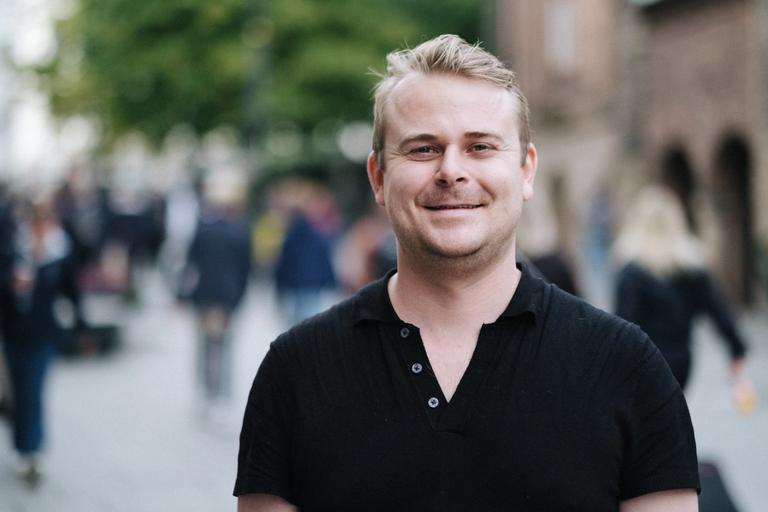– Surgeries are the very core of hospital operations. We are developing a product that allows hospital staff to plan and make better use of capacity, says Olav Willumsen Haugå, CEO at Deepinsight.
Through the innovation partnership KNIPS, Nordlandssykehuset, DIPS, and Deepinsight will develop a new solution for surgery planning based on AI and data. Deepinsight contributes with important experience in the use of optimisation models on health data, and will therefore lead the development of the solution with support from DIPS.
DIPS has more than 30 years of experience with IT in healthcare, and their EHR system DIPS Arena is the foundation of the IT solutions in Norwegian hospitals. The collaboration with DIPS is therefore essential for KNIPS to be a success.
We are ambitious, and the first version of the product shall be ready in six to nine months, says Olav.
The project kicked off in September 2022 with user interviews of employees at Nordlandssykehuset. It became clear that this is very complex, much due to unforeseen situations at the hospital, which means that large parts of the working day are spent on "putting out fires", and that they therefore have no time to plan ahead. In addition, both the health personnel and the administration feel that the tools they use are not good enough. This is also consistent with what we have learnt in other hospitals.
– This is far from an ideal working day when we know that unforeseen situations postpone planned surgeries every day. A cancelled surgical procedure is very expensive and puts extra strain on the patients, Haugå explains.
The KNIPS group is therefore looking at how the hospitals can think differently in order to plan more flexibly to help the hospitals keep the promises they make to patients.
– That means beautiful mathematics. We have to really understand the problem and build a product that people love to use and that improves the work day of the surgery planners as much as possible, says Haugå.

Rethinking how to plan
In the ongoing innovation process, the participants are discussing how Nordlandssykehuset can think about surgery planning in new ways.
An example that is highlighted is how the digital grocer Oda solves the logistics with home delivery. In the same way that new patients constantly enter a hospital, new customers order food from Oda. In order to use its resources efficiently, Oda optimises the drivers' routes as customers make new orders.
The delivery time becomes more and more precise as the delivery window approaches, and Oda updates customers continuously via text message.
– The example from Oda shows that there are other ways to plan than the traditional timetable, explains Håvard Thøgersen, COO of Deepinsight and Project Manager for KNIPS.
It also shows that it is possible for hospitals to plan in a way that takes into account the unpredictability of patient treatment and hospital operations.
– The aim is to put the people doing the planning at the centre by digitising and modernising their work day and the patient experience. To achieve that, making information about patients and capacity available is important, continues Håvard.

Good results in Danmark
There are also great examples from the health sector. In Denmark, they have developed and adopted an optimisation model that predicts the treatment time for treating patients in the neurosurgery department. Such patients must have surgery within one to two weeks and thus go to the front of the queue and change the set timetable in the operating theatres.
The hospitals know that these patients will arrive, but not when. After the model was put into use, they have been able to anticipate the needs better and the number of cancelled surgeries has decreased by 77 percent and productivity at the hospital has increased by 20 percent.
KNIPS is also inspired by the international expert on data-driven process optimisation, Maartje Zonderland. Among other things, she is responsible for implementing the models at the hospital in Denmark.
Deepinsight partnered up with her earlier this year to learn from her experience in developing and using data models on administrative health data.
Read more about our partnership with Maartje and her views on Norwegian surgery planning.
A solution that hospitals will use
It is no coincidence that Nordlandssykehuset is involved in the KNIPS project. Deepinsight's sister company, DIPS, was started in the basement of Nordlandssykehuset in 1985. This has led to Bodø having Norway’s largest developer environment within e-health.
The KNIPS project will work similar to an innovation hub for finding and testing good solutions in an authentic environment. There are undoubtedly several directions that can be explored, and therefore the insight work with employees at Nordlandssykehuset becomes extra important.
– We have to do thorough insight work among the users in order to develop solutions that actually solve the challenge of surgery planning, says Thøgersen.
Deepinsight utilises the full width of the company’s competence in the KNIPS collaboration with software developers, data scientists, designers, UX designers and project management.
– The most important thing is that we develop a product that Nordlandssykehuset actually needs and wants to use. We are therefore working closely with DIPS to ensure that the solution will be available in the DIPS system, says Thøgersen.



